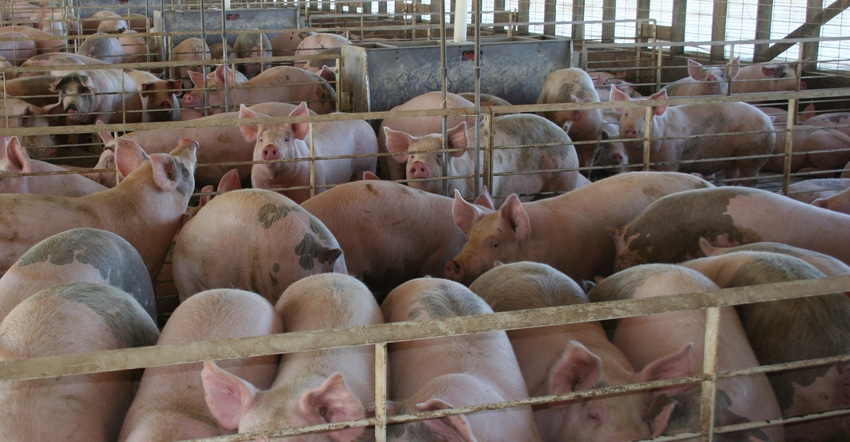
Jayson Lusk didn’t realize how soon his words of caution would become reality when he commented about the potential disruption pork plant closings could cause. The head of Purdue University Agricultural Economics made his comments during a late-April webinar. Of the 15 largest pork plants in the U.S., which slaughter nearly 60% of the nation’s hogs, one was already shut down.
“We can handle a couple [of plants closing], but if we get three or four, we could have major supply issues,” he said. Within a week, multiple plants, including at least four of the largest and both major plants in Indiana, were shut down due to COVID-19 outbreaks among workers.
Related: Complete coronavirus coverage
The disruption is not only to consumers and the food supply side, but also to producers who suddenly have no market for ready-to-market hogs — with more animals waiting to fill their pens that should be empty.
In the wake of this crisis, Beth Tharp, Legan Livestock & Grain Inc. and LT Farm Meats, Coatesville, Ind., penned this editorial. And while the situation has evolved since, it expresses how a typical hog producer viewed the current crisis. Here is a blog she posted on her website:
Of food shortages, euthanasia and the like …
“It’s been plastered all over the news and I’m sure you’ve heard; the U.S. livestock industry, specifically pig farmers, are going through a crisis situation. It’s a human health issue stemming from COVID-19 outbreaks with workers at the processing facilities. You see, there are plenty of hogs, but not the processing capacity, as plants all over the nation are shut down or running at limited capacity. Predictions are that meat will be limited on supermarket shelves in a week or two.
“For the last 30 years, my family and I have taken care of pigs, and in return, they have taken care of us. Raising pigs has been our core business, and the pigs have provided for our and our employees' families. While we really appreciate and are excited about the opportunity to provide food direct to consumers from our farm through LT Farm Meats, the majority of our pigs are processed by packing plants that supply meat to grocery stores domestically and across the globe.
“Competition and narrow margins have evolved [the pork industry] into one that runs efficiently. Pigs are grown in a just-in-time fashion with a continuous stream of pigs born every day, and pigs harvested every day. Barn space is fixed, and pigs keep growing.
“When we aren’t able to harvest pigs and barn space is limited, hard decisions must be made. In order to avoid animal suffering of overcrowded spaces, animals will have to be humanely euthanized.
“Market-ready pigs, euthanized and not able to be used for meat products ... this is gut-wrenching, like physically makes me sick to my stomach. Fortunately, up to this point, we have not had to do any mass euthanasia on our farm. This is an evolving situation, and like any thoughtful business owner, we are making contingency plans. Plans we hope to never have to enact.
“It’s human nature to jump in and start pointing fingers, but never wise. This is just a situation that has no good answers, I’m afraid, and no happy endings. We don’t want workers to be sick, we don’t want people to go hungry from food shortages at the grocery store and at food pantries, and we don’t want to have to euthanize pigs that we have spent the last six months caring for and would otherwise provide nutritious protein for those who need it.
“As you can imagine, local processing facilities have filled their spaces quickly. We try to plan a year ahead with our local butcher for our LT Farm Meats processing. We are thankful for the animals that we were able to get scheduled last December for the 2020 calendar year and are on a wait list to get whatever more in we can.
“We also realize we are in a unique position to provide for those in need in our community. We have started and plan to continue to donate meat from some of the animals that we send through the local processor to food pantries in Putnam County.
“These are challenging times for so many. We try to keep focusing on what we can control and lean hard on our faith.”
Read more about:
Covid 19About the Author(s)
You May Also Like




